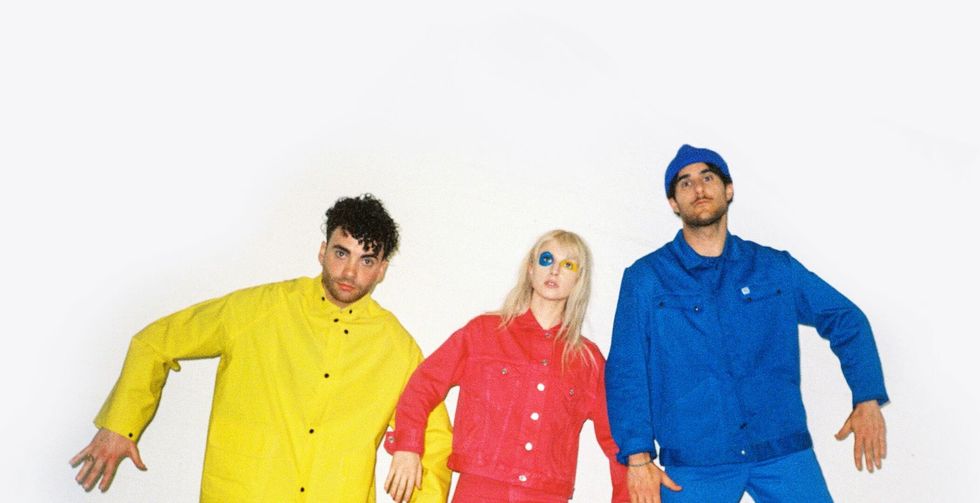On May 12th, Paramore released its 5th LP, “After Laughter", a record that proves to be a triumph for a band who has endured many tough changes in recent years. This album defied expectations with a blend of 80’s synth pop rhythms that contrast the darker undertones of vulnerable lyrics that delve into depression, isolation, and betrayal. Despite all the petty drama and public disputes the band has withstood in the past, this record is nothing short of an incredible display of musical skill and extraordinary talent. With Zac Farro's recent return to the band, the rekindling of Taylor York and the former drummer has lead this group to a truly inspired musical sound that features a fresh take on the techno-pop beats of the past. When mixed with the incredible songwriting abilities of the open and honest Hayley Williams, Paramore's new music finds the perfect balance between catchy radio-pop and hard hitting reality.
From her wild hair to her undeniable musicality, Williams has proved herself as a punk-rock talent worth following. While making this record, she symbolically dyed her hair white to emulate a "blank slate." After it's release, it became clear she and her band mates we're doing more than changing hair colors to move away from their head-banging ways of the past. While this album brought many changes for Paramore, Williams has thankfully not lost her angst or her genuine lyricism that’s become such a signature aspect of Paramore’s music. In recent years, the singer has opened up about her battles with depression and mental illness. Though her lyrics are already known for their openness, she reaches new levels of vulnerability in “After Laughter.” As a twenty-eight year old who became a massive success in her teen years, Williams is unafraid to tell the world she’s struggling. Through her music, she confronts her pain with bravery and exposes her hardships with pride. Despite the many social stigmas regarding mental health, Williams sings honestly about her depression through songs of sorrow, anger, and loneliness. In an interview with the New York Times, she notes on the drastic changes in her life, saying “you can run on the fumes of being a teenager for as long as you want, but eventually life hits you real hard.”
While many of Williams past lyrics address problems of heartbreak, she tackles more than just relationship issues in this record. She talks about the agony of feigning happiness to please others, of inescapable melancholy, and of constantly feeling like a burden to others. Some of these lyrics include, “Hard times/ gonna take you down and laugh when you cry”, “I bet everybody here is fake happy too, " and "I'm right at the end of my rope/ a half empty girl." As a listener who sometimes grows tired of the radio's excess of overtly positive or salacious songs that feel out of touch with reality, William’s rawness is refreshing and greatly appreciated.
In one of the song’s acoustic tracks, “26”, Williams writes “hold onto hope if you got it.” Though she grapples with this recent loss of hope, she has also noted how therapeutic the creation of her new music has been. Her somber and cynical lyrics do not necessarily indicate that the singer has lost all feelings of optimism, they just portray that she needs to express this newfound pain and sadness she's been dealing with in an unfiltered way. She reports, “I have a public diary of my life and I feel useful because of it.” With this album, Williams has become another artist who found a way to beautifully turn her own heartache into emotional art. "After Laughter" is an album the world can not only dance to and enjoy, but also can connect with in times of hopelessness and confusion. With the brilliant contrast of their newfound upbeat sound and lyrics that explore the darker parts of the psyche, this record becomes one worth a few dozen plays.




















